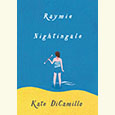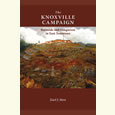An Unlikely Cast of Heroines
Women prevail in an inventive debut story collection
Gwen E. Kirby’s bold debut collection of stories connects an unlikely cast of heroines across time and space, each encountering her own series of obstacles in pursuit of survival, pleasure, and fulfillment. In the collection’s title story, “Shit Cassandra Saw That She Didn’t Tell the Trojans Because at That Point Fuck Them Anyway,” the archetypal woman cursed to prophesy the truth without being believed is revisited with a timely, inventive spin.
 Among the things Cassandra doesn’t tell the Trojans about the future is that their very name would one day “be carried in every hopeful wallet, extracted with abashed confidence, slipped over the shaft, rolled to the base.” This is the sort of brilliantly wry punchline that characterizes Kirby’s playfully confrontational tone throughout the collection.
Among the things Cassandra doesn’t tell the Trojans about the future is that their very name would one day “be carried in every hopeful wallet, extracted with abashed confidence, slipped over the shaft, rolled to the base.” This is the sort of brilliantly wry punchline that characterizes Kirby’s playfully confrontational tone throughout the collection.
While some stories nod to women of the past such as Cassandra or an accused witch (“First Woman Hanged for Witchcraft in Wales, 1594”), others look to the future. In the zany “Normal Things That Happen a Lot,” women are bitten by radioactive cockroaches and given monstrous powers with which to ward off unsavory male attention: “They get very drunk on the beer that their cockroach bodies love, and walk home under the stars, and when they see a man they hiss and the man runs away and they laugh.”
The relationship between the supernatural and the everyday in Kirby’s writing imbues her protagonists with nuance and depth. The fantastical elements are imaginative and shocking, but never distract from the gritty human heart of the complex characters. In “Here Preached His Last,” a mother has an affair with her neighbor under the disapproving watch of the town’s famed preacher-ghost who calls her a “whore whore whore,” which only fills her with more desire. Kirby’s women are empowered by their complexities and wrongdoings, offering evidence of women taking up space in a male-dominated world.
 These stories occupy a deft variety of forms — some experimental, all magnetic and accessible. In the laugh-out-loud hilarious “Jerry’s Crab Shack: One Star,” a male narrator writes a one-star Yelp review of a local diner following a bad dinner date. Over the course of his review, he devolves, expressing more interest in reviewing the waitress’s outfit, his marriage, and ultimately his own reputation rather than the quality of the seafood. His performance of pragmatic judgement is revealed to be a mask for his deepest fears.
These stories occupy a deft variety of forms — some experimental, all magnetic and accessible. In the laugh-out-loud hilarious “Jerry’s Crab Shack: One Star,” a male narrator writes a one-star Yelp review of a local diner following a bad dinner date. Over the course of his review, he devolves, expressing more interest in reviewing the waitress’s outfit, his marriage, and ultimately his own reputation rather than the quality of the seafood. His performance of pragmatic judgement is revealed to be a mask for his deepest fears.
A story-length run-on sentence comprises “Friday Night,” in which a woman and her husband argue over what to have for dinner, though she would rather have sex and ultimately a baby: “… my egg is on the fucking move like Wile E. Coyote ten feet past the edge of the cliff, gravity about to ruin his day, and my husband leaves the room and slams the door and I can hear him say goddamit, I can hear him get on the phone and order a pizza, a veggie garden delight, and he doesn’t ask to add pepperonis on half because he knows that I love pepperonis and he’s pissed off… .” The result of Kirby’s unique syntax is an overflowing breathlessness, seamlessly mirroring the emotional tension of the couple’s argument.
Effortlessly referencing hot topics such as date rape and toxic masculinity while illuminating the brave-and-depraved humanity of her protagonists, the stories of Shit Cassandra Saw consistently bewilder and delight. Ranging from mythic to futuristic and the mundane, middle-class crab shacks in between, Kirby’s sharp, double-edged wit sears the page with devastatingly smart storytelling.

Lauren Turner is a writer and musician (Lou Turner, Styrofoam Winos) in Nashville. She is an M.F.A. candidate in poetry at Randolph College and the author of Shape Note Singing, her debut chapbook from Vegetarian Alcoholic Press. Her most recent album, Songs for John Venn, was deemed “some kind of low-key masterpiece” by Aquarium Drunkard.


